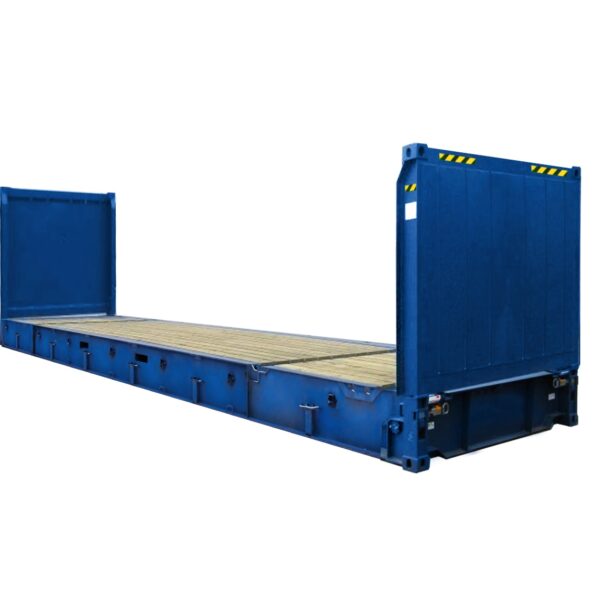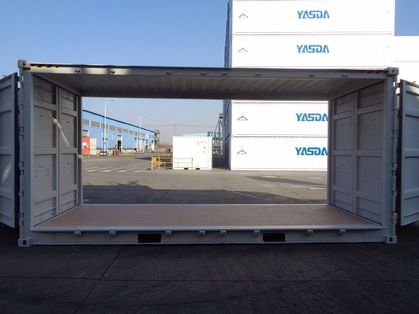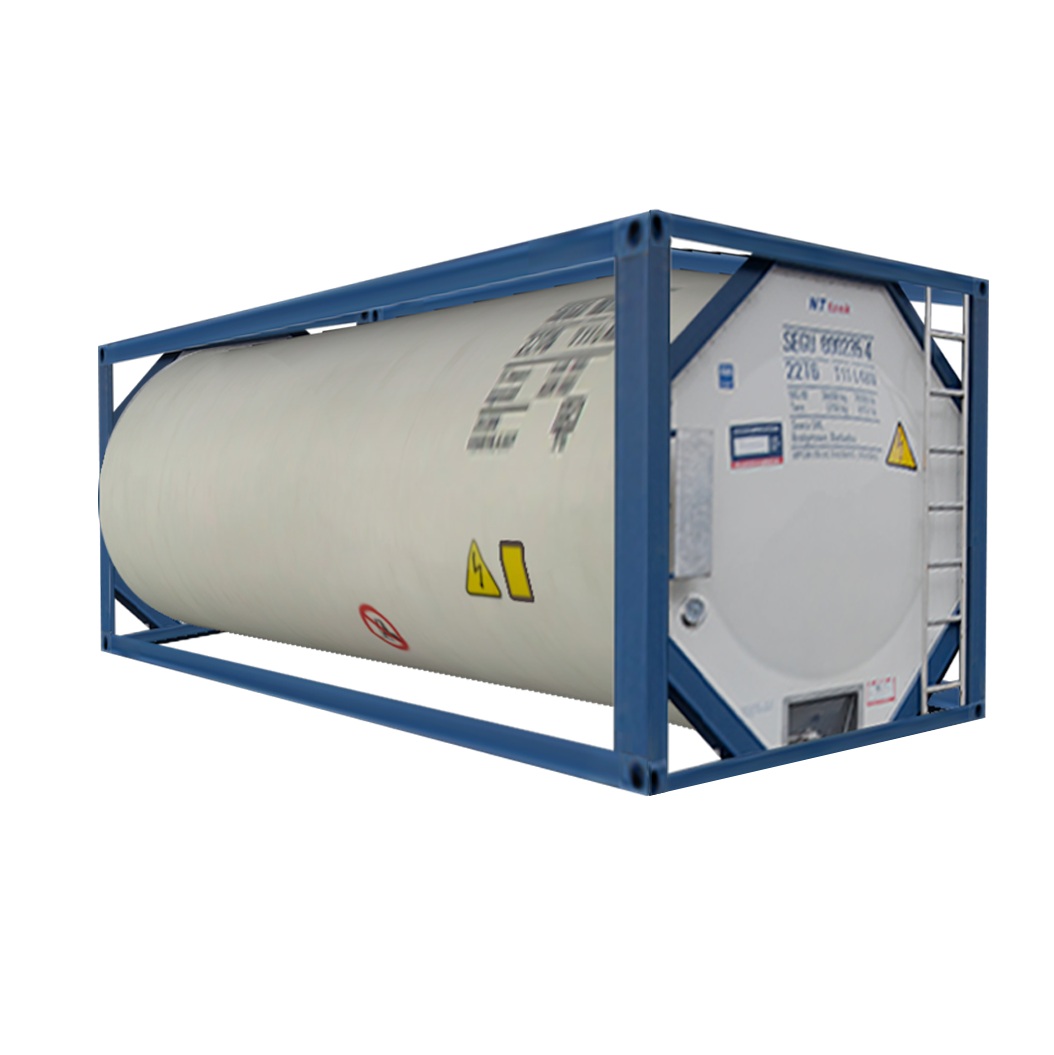Tank Container For Sale
Buy ISO Tank Container Online or tanktainer is an Intermodal Container for the transport of liquids, gases and powders as bulk cargo. It is built to the ISO standards, making it suitable for different modes of transportation; as such, it is also called an ISO tank. Both hazardous and non-hazardous products can be transported in tank containers. Gas containers sometimes have multiple bottles instead of one large tank.
Tank Container Capacity
A tank container is a vessel of stainless steel surrounded by an insulation and protective layer of usually polyurethane and aluminum. The vessel is in the middle of a steel frame. The frame is made according to ISO standards and is 19.8556 feet (6.05 meters) long, 7.874 feet (2.40 meters) wide and 7.874 feet (2.40 meters) or 8.374 feet (2.55 meters) high.
The contents of the tank range from 17,500 to 26,000 liters (3,800 to 5,700 imp gal; 4,600 to 6,900 U.S. gal). There are both smaller and larger tank containers, which usually have a size different from the ISO standard sizes.
ISO Tank Container
ISO tank containers built to transport hazardous cargo have to meet a variety of regulations including but not limited to IMDG, ADR-RID- US DOT and other. There are a variety of UN Portable tank types, the most common of which is T11 as it is permitted to transport a thousand or more hazardous bulk chemicals.
There are hundreds of tank container operators worldwide; they can vary on the service they offer. The bigger operators typically offer a wide range of services, while smaller operators may only offer services in one region or with one type of tank. Tank Container For Sale
Handling
A spine car with a 20-foot tank container (left) and an open-top 20-foot container with canvas cover (right)
A tank container can be loaded and unloaded from the top and the bottom. On a standard tank container there is a manhole and at least one valve on the top, and there is a valve at the bottom. Loading and unloading is done by connecting hoses of the loading and unloading facility to the valves of the tank. The loading or unloading is often done using a pump. Depending on the installation and regulation of certain products, it is determined how the tank container should be loaded or unloaded.
Types Of Tank Container
- Swap body tank – a swap body has a bigger tank which is larger than the frame, usually 23 or 25 feet (7.01 or 7.62 meters) long
- Food-grade tank – a standard tank container which can only be loaded with food grade products
- Reefer tank – a tank with the ability to cool (“refrigerate”) the product to be transported
- Gas tank – a tank that is suitable for the transport of gases
- Silo tank – a tank for the transport of grains and powders
- T1 ISO tank container (for wine and light liquids)
- T4 ISO tank container (for non-hazardous edible and non-edible oils)
- T11 ISO tank container (for non-hazardous chemicals)
- T14 ISO tank container (for hazardous chemicals and acids like HCl and zinc chloride)
- T50 ISO tank container (for LPG and ammonia gas)
- T75 ISO tank Container ( for Cryogenic liquids )
- SWAP tank container (for cargo above 26,000 to 32,000 metric tons or 25,600 to 31,500 long tons or 28,700 to 35,300 short tons)
- Rubber-lined ISO tank container (for acid-based chemicals)
Competitive Modes
- Barrel
- Intermediate bulk container
- Tanker
- Tank chassis
- Tank truck
- Tank wagon





